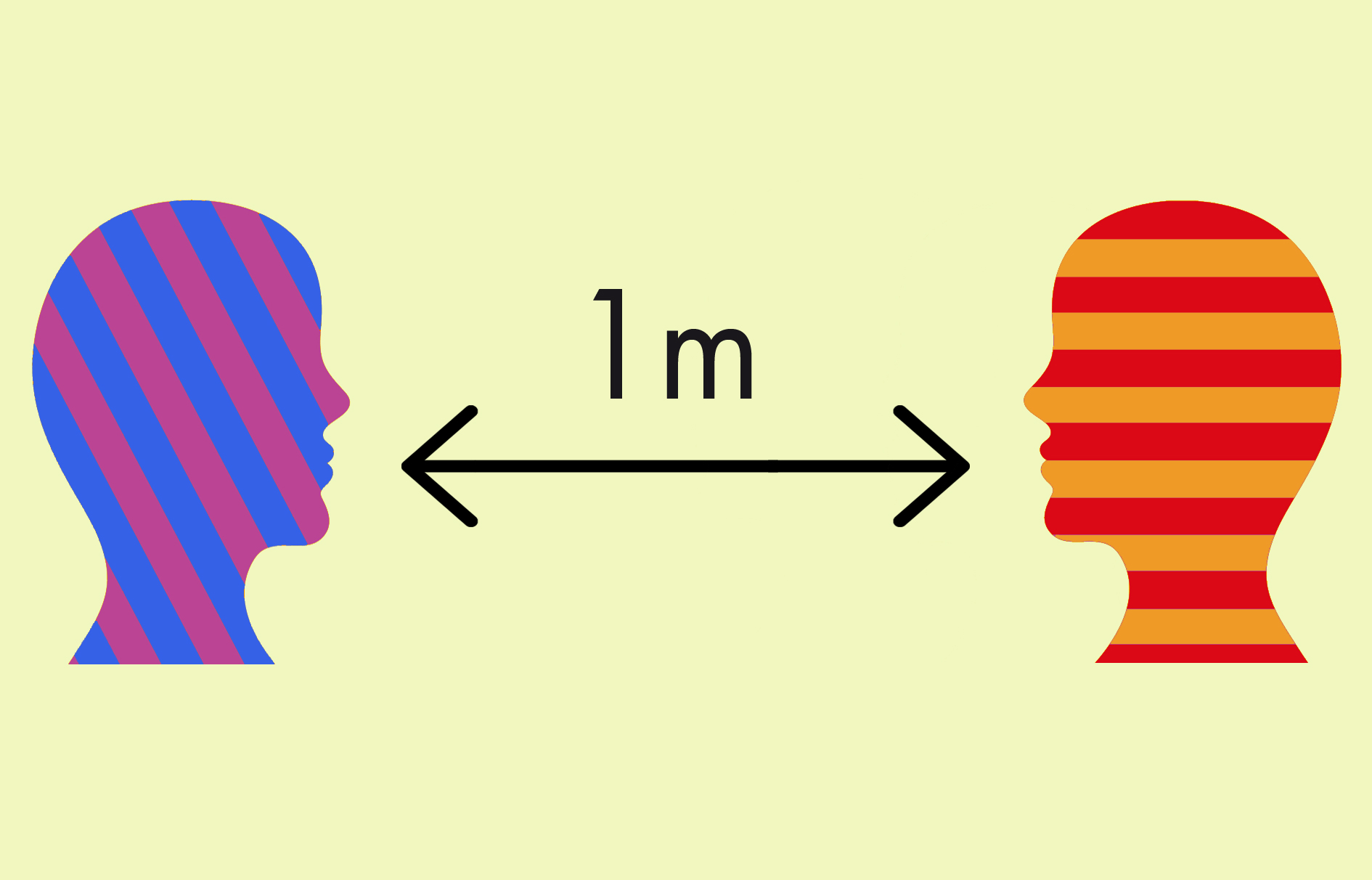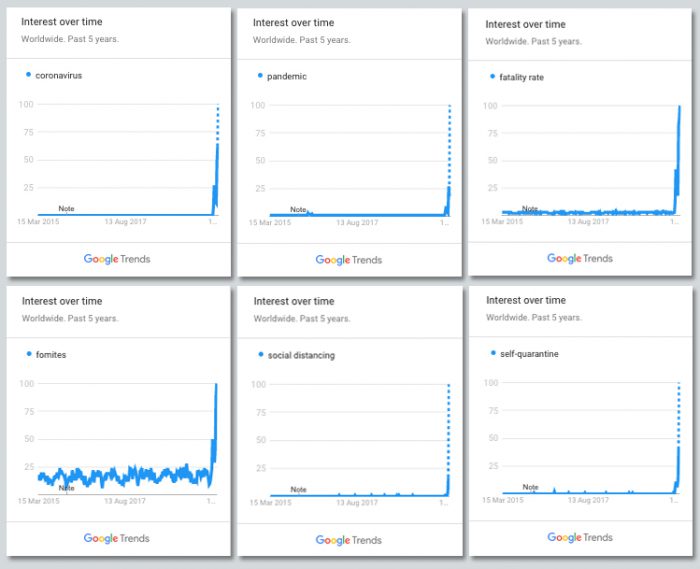
From “social distancing” and “fomites” to “boomer remover”: new coronavirus-related terms are entering the lexicon
by Pisana Ferrari – cApStAn Ambassador to the Global Village
“Two of the most widely felt symptoms of the coronavirus are uncertainty and confusion, and part of this is about jargon”, says the author of a recent article in Time. Since the start of the epidemic “the news is a whirl of unfamiliar words”, starting with the word “coronavirus” itself, he adds, and this is a matter of grave concern. (1) We looked up Google Trends, a website that analyzes the popularity of top search queries, to see which words users have been looking up more than usual, in connection with the coronavirus. Data from the website reveals a huge spike in past weeks for web searches on terms such as “boomer remover”, “self-quarantine”, “fatality rate”, “social distancing”, “fomites” and “pandemic”, as well as “coronavirus”, confirming that the concern is justified. We have collated the information for six of these terms in the table below.

A correct understanding of the pandemic containment measures is vital in terms of compliance
Understanding relevant medical terms is particulary important during a time of health crisis, says Melissa Nolan, Professor of Epidemiology at the University of South Carolina, interviewed for NPR News. ( 2) “When you educate people, they’re not as afraid. And they can understand what their personal risk is.” Her words reflect an increasing global awareness, in recent decades, about the need to improve “health literacy” in the general population. This is not just about personal risk either: a better understanding of the issues at stake is more conducive to people adopting appropriate public behaviours (and in avoiding panic). The World Health Organisation (WHO) has published detailed information about the coronavirus but does not have (at least to our knowledge) a dedicated lexicon. It may be in the pipeline. In the mean time a vast number of newspapers, magazines and scientific journals have been forthcoming in providing glossaries (see links below) and another place that people are turning to are dictionaries. Some news outlets have also highlighted the risk that information on the coronavirus get “lost in translation”: this is particularly relevant to regional and minority language groups. For example, the Hispanic community in the US is saying that there is very little information about the pandemic other than in English. (3)
How some of the new “coronaspeak” is deepening the generational conflict
Here is a new term that has been recently introduced on social media and is causing an uproar: young people have started referring to the coronavirus as a “boomer remover”, referencing the fact that the virus affects mostly people over 60 (“boomers” are people born in the period 1946-1964). The hashtag #BoomerRemover is reported to have started trending on Twitter only a couple of days ago but has already appeared in 65.000+ tweets. Its early mentions were mostly apocryphal anecdotes, reads an article on Newsweek, but it has now become “a battleground for generational warfare on social media”. (4) Boomers have become a recent cultural fixation for the younger generations, it adds. “OK boomer” is another phrase which has gone viral lately, used to dismiss views of older people, including global warming minimization. Boomers, take heed!
Read more about cApStAn’s work in the field of translation and adaptation here.
Footnotes
1) “Coronavirus: A Glossary of Terms to Help You Understand the Unfolding Crisis“, Katy Steinmetz, Time magazine, March 11, 2020
2) “Must-Know Vocab For COVID-19: From Droplets To Zoonotic“, Malaka Gharib and Natalie Jacewicz, NPR (National Public Radio News), February 14, 2020
3) “Hispanic leaders worry coronavirus safety information is lost in translation“, Leslie Moreno, WRAL.com, March 13, 2020
4) “What Is ‘Boomer Remover’ and Why Is It Making People So Angry?”, Andrew Whalen, Newsweek, March 13, 2020
Glossaries
“Coronavirus: A Glossary of Terms to Help You Understand the Unfolding Crisis“, Katy Steinmetz, Time magazine, March 11, 2020
“From Pandemic to Social Distancing: A Coronavirus Glossary“, Jenny Gross and Mariel Padilla, The New York Times, March 11
“From ancestral strain to zoonosis: a coronavirus glossary“, Nicola Davis, The Guardian, March 11, 2020
“Must-Know Vocab For COVID-19: From Droplets To Zoonotic”, Malaka Gharib and Natalie Jacewicz, NPR (National Public Radio News, February 14, 2020 https://www.npr.org/sections/goatsandsoda/2020/01/28/800142530/must-know-vocab-for-wuhan-coronavirus-from-droplets-to-zoonotic?t=1584190735064
“Pandemic, COVID-19 and all the coronavirus terms you need to know”, Erin Ross, OPB News, March 10 https://www.opb.org/news/article/covid-19-coronavirus-glossary-medical-scientific-terms/
Photo credit visuals-ORP @Unsplash